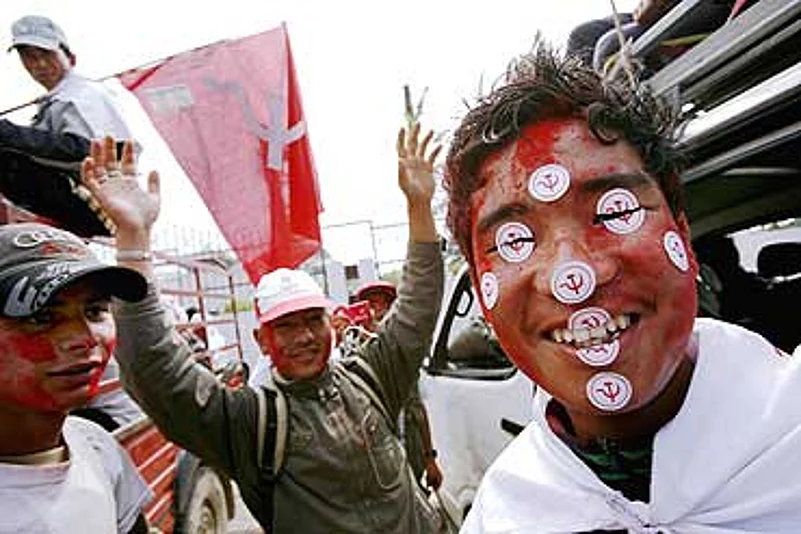
Former diplomat Dr Bhekh Bahadur Thapa told Outlook that "for the international community, it will still be a wait and watch phase". He said India's fears about the Maoists are understandable, considering their demand to revise the 1950 Indo-Nepal Treaty of Peace and Friendship, call for a review of hydroelectric projects and a stop to the recruitment of Gorkhas into the Indian and British armies. In addition, there are fears of Naxals in India receiving support, however unlikely, from the Maoists. Still, even Thapa feels the poll results hold out a message to the Naxals—join the mainstream to change the polity.
If anyone is in a grim mood, it's the business community. The election results sparked off a crash in the stockmarket. "The Maoists must change their earlier attitude—especially the Young Communist League (YCL)—towards us," Rajendra Khetan, a leading Kathmandu-based businessman, told Outlook. The YCL has in the past been guilty of extortion, the business class being their main target. Soon after meeting Prachanda, Kush Kuma Joshi, president of the Federation of Nepalese Chambers of Commerce and Industries, told Outlook that the "Maoists must take the business community into confidence". Joshi and others are wary of the new government adopting socialist policies. For instance, they haven't yet withdrawn their statements declaring that foreign investment would be restricted only to the infrastructure sector. Those in the health, education sectors—which have undergone massive expansion over the last decade—have reason to fear a government takeover.
Equally tricky will be a situation where the Maoists seeks to integrate their armed cadre—the 19,000-strong People's Liberation Army (PLA)—with the Nepalese Army. Not only were the two locked in a bloody war for over a decade, senior army officers are frequently described as arch-royalists. With the Maoists likely to retain the defence portfolio even in a coalition government—and expected to press ahead with the integration plan—the army and the PLA could find themselves pitched in yet another round of bloody confrontation. For sure, it's a tightrope walk for the Maoists—they will be wanting to implement their radical policies, but how to do it without tearing apart Nepali society.





















